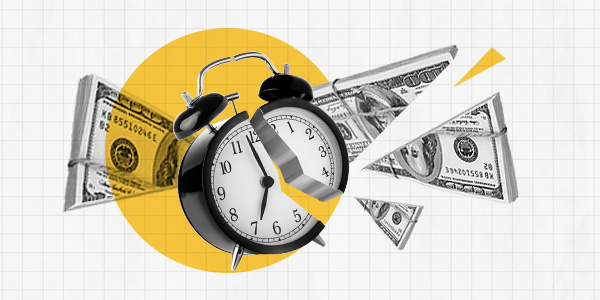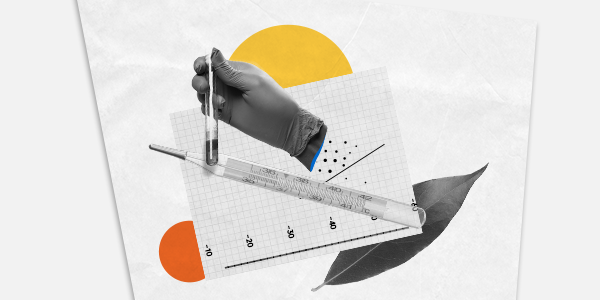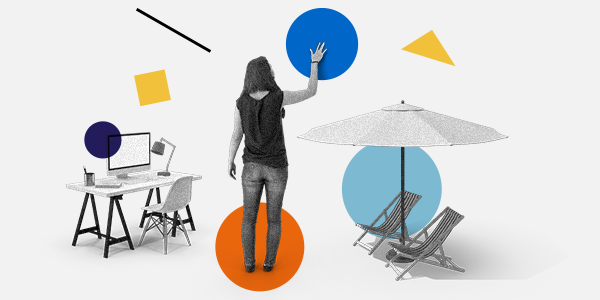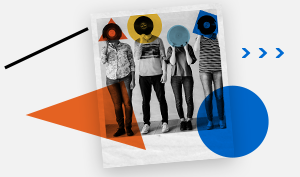 Brooks and Suzanne Ragen Professor of Psychology & Cognitive Science, Yale University
Brooks and Suzanne Ragen Professor of Psychology & Cognitive Science, Yale University
Paul Bloom, PhD, is the author of How Pleasure Works and Against Empathy. “Empathy” with clients and customers is at times put on a pedestal by businesses, but Bloom’s research shows that at times, empathy can lead to bias. He has written for The Atlantic, The New Yorker, and The New York Times and his TED talks have over 3 million views.
In this conversation, Kelly and Paul discuss issues of empathy, scientific thinking, and motivation during a pandemic.
Kelly Peters: Help us understand the pandemic and how we should be applying your insights to our own understanding and interaction with each other, with the rules around social distancing, and how our perception of risk either fits in or doesn't fit in with this pandemic.
Paul Bloom: I think the short answer is that this work on empathy, as well as all of my other work, doesn't actually fit in well with helping us get through the pandemic. I'm not a medical doctor. I'm not a public health expert. I have nothing to say about masks, or social distancing, or whether the university should open up in the fall. We talk about this maybe, but I worry a lot of my colleagues are also unprepared to give much value in this situation, and they just don't know it. I think there are a lot of psychologists putting themselves out there as experts on this one. We're really not in that much of a position to give firm advice on things.
More generally, what I do in my work, and what I did in my empathy book, is to argue that certain sorts of emotional reactions are corrosive to morality. They don't make us better people; they make us worse people. It gets complicated; there are all sorts of ways you would want to feel empathy, all sorts of ways you would want to feel rage; you would want to feel shame or guilt or bias. Some bias is just fine; I love my children a lot more than I love you, and I think that's okay, but there are all sorts of cases where our emotions lead us astray, and empathy is a good example of one that does.
The way I'd connect it to this crisis, and any other, is that we should be very wary of arguments or claims that zoom in on specific individuals and take only their concerns. If I wanted to argue for a much longer lockdown, I will tell you some horrible stories about people who are now suffering because of the irresponsibility of governments and people going out too early. If I want to persuade you to open up right now, I'll tell you moving stories of people who've lost their businesses or livelihood. The fact that this tool of empathy can be used to argue either side of the case just says how bad it is.
I think the way through this is through intelligent cost-benefit analysis. That sounds really cold and really boring, but it's actually the most moral and compassionate thing to do. So, that's my schtick as to the extent of any sort of connection.

Kelly Peters: It's an incredibly dangerous time for the distribution and firm conviction of information that people don't have the ability to process, nor should they be, proselytizing it with the level of vengeance that they are. Just using the tragic trade off scenario that you used, we have lay persons that are firmly finding their slots between position A and position B, and that's just very countervailing to what reason would say. I would love to have your thoughts on that.
Paul Bloom: It's an interesting issue. Lay people, like me, aren't to be blamed for being unsure and confused about a lot of this. I'm old enough to remember, because I'm more than three months old, that at the beginning of this, Vox had an explainer. They had a Q & A. “Is this a global pandemic? No, it is not. Do not fall for panic. Do not overreact.”
The world, according to experts, is either that we are on our way out of this crisis, we'll be fine for the next few months, or it's going to hit us in the fall and kill us all. It is reasonable for somebody who's a lay person to say, “I don't know”, but what people often do is take these views and imbue them with certainty. I’ve seen people say, “You think masks are good, you're crazy. I know masks are terrible. I've read this study. You're a monster for suggesting that.” Often, the same people three weeks later are saying “I think everybody should wear a mask. You don't wear a mask? What kind of heartless creep are you?”
I think a scientific attitude towards the world is one of the things that gives us humility and uncertainty. What do I think about masks? Well, there seems to be consensus growing that masks are useful. Maybe they are, maybe they aren't. I think I'll wear them, so I don't have people yelling at me. When people talk about scientific thinking, that's so much of it; not being certain when certainty isn't warranted.
Kelly Peters: I think that this aspect of scientific thinking is one of the most profound and yet most difficult to understand, and perhaps even to practice, on an ongoing basis. Usually we’re equating “that's what science says” with our expectation, that it means certainty, it is objective truth. Yet, it's actually the opposite of that. That is the paradox, that evidence and science seem to suggest full issue resolution and yet, actually, scientific thinking is about embracing this idea that there's always some scenario where we could be wrong. It's very difficult.
Paul Bloom: It's very difficult, particularly when the issue meshes with politics, because politics is a game of certainty - “This person's terrible and should be thrown out of office. This person's great.” - and it is antithetical to a scientific world view.

Kelly Peters: If you want to increase people's commitment or compliance with lockdowns, then you show people a range of age, or other demographic characteristics, to tweak their sensibility around that. The inverse, you need people to be ready, willing, and able to accept easing of those restrictions. We've seen the impact of that in different domains. I would be interested in your point of view in terms of the ethics of persuasion and the intentional use of these fundamental insights about human belief and behavior.
Paul Bloom: I think, in some sense, you imagine a problem coming up in a very serious way. If we psychologists were wizards at persuasion, we can get people do whatever we want. We know the secrets of the human mind; we know exactly what buttons to push. That's very far from the truth. I think marketers and politicians are actually much better at knowing the tools of persuasion than university professors, people in think tanks, and so on. What psychologists are good at doing is testing different alternatives, thinking of different alternatives and testing them. Some forms of persuasion are more effective than others, and it raises the moral question of what kind of persuasion is legitimate and what kind of persuasion is illegitimate?











